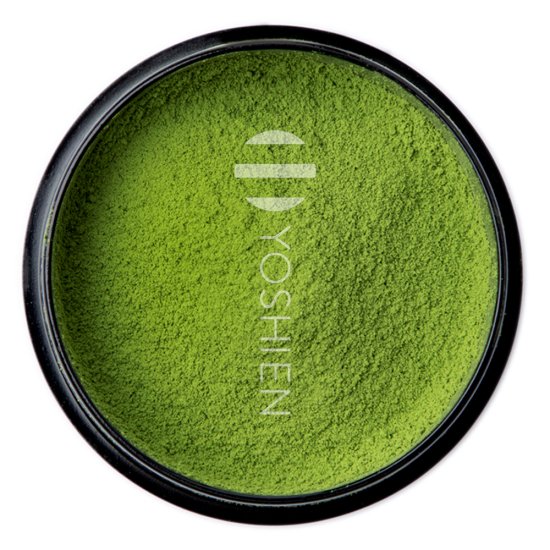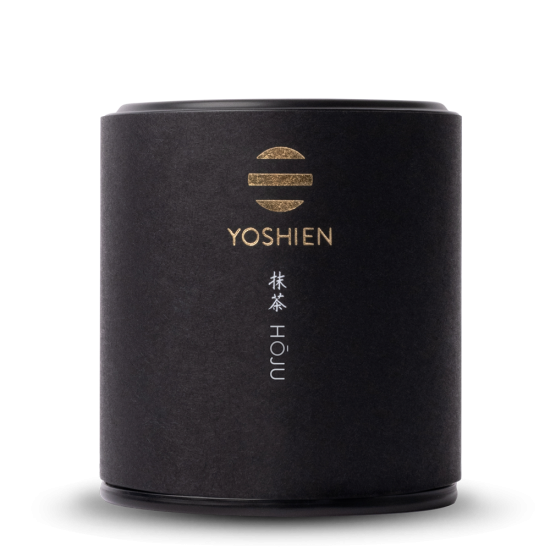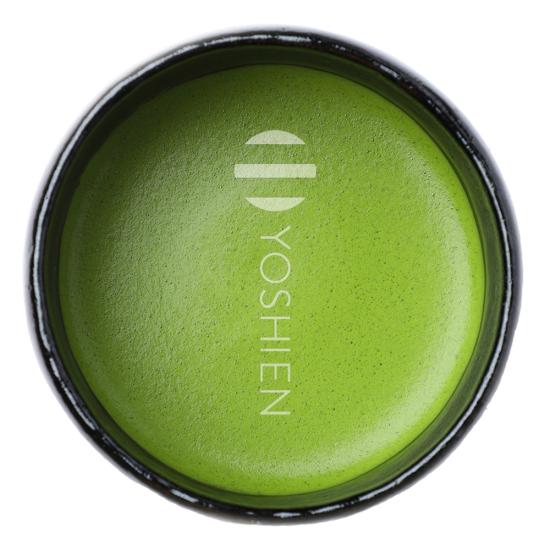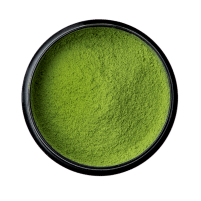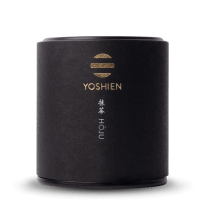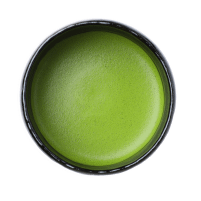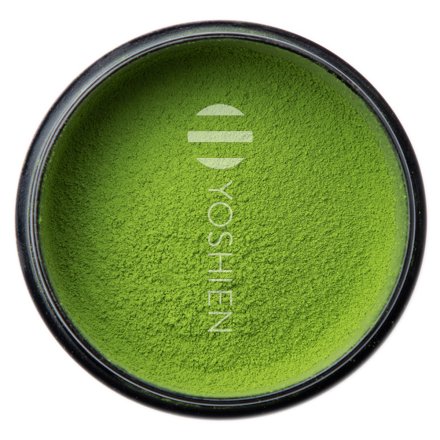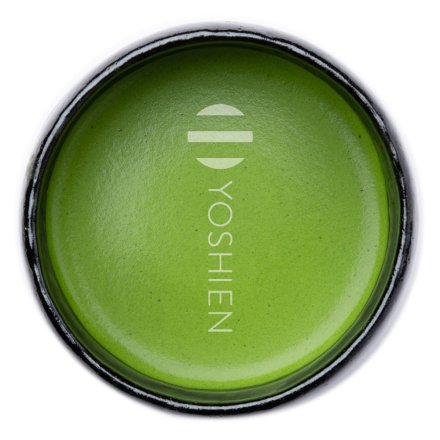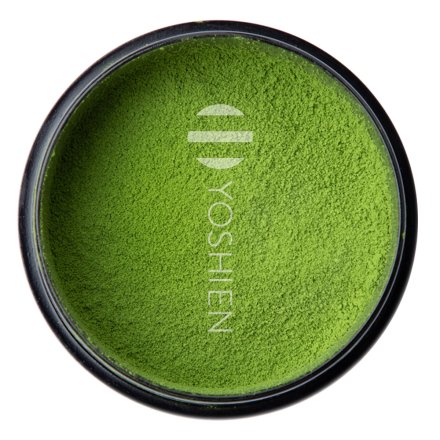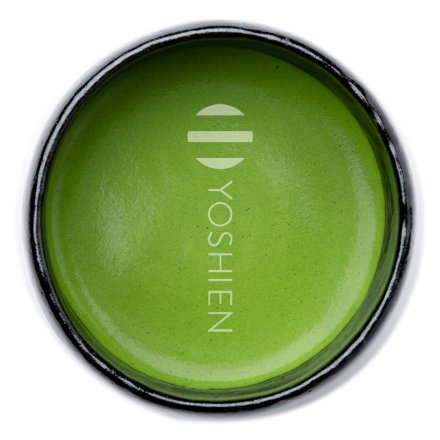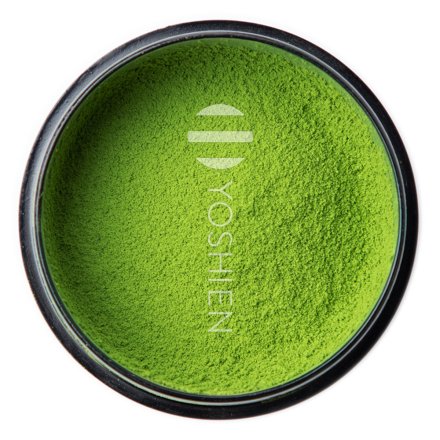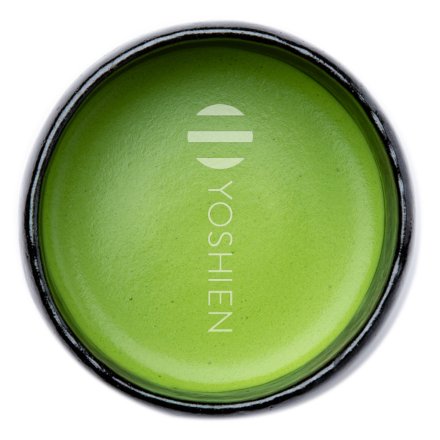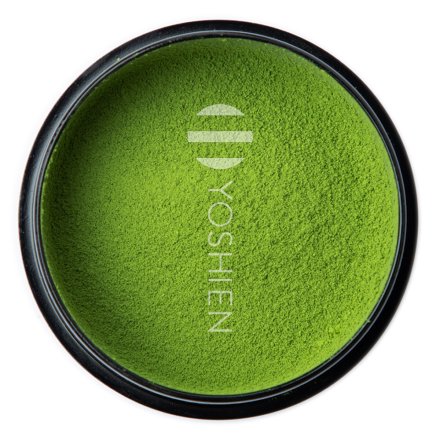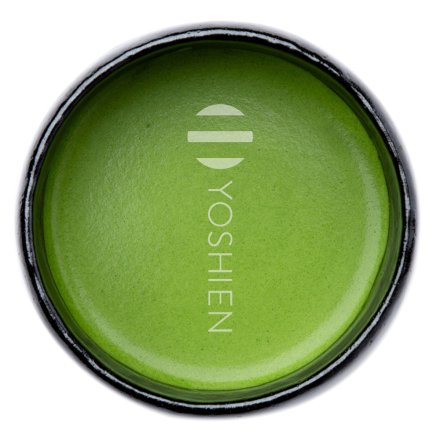Making Matcha
Using a bamboo chashaku spoon, place two heaped scoops (or approx. one teaspoon) of matcha powder into a matcha bowl of your choice, then pour approx. 80ml hot water (between 60°C and 80°C) into the bowl. Try not to pour the water directly onto the matcha, as this will increase clumping.
To achieve the classic matcha foam, a matcha whisk is indispensable. When using a matcha whisk, the most important thing is of course to master the correct movement: circular and typical whisking movements will result in little to no foam, while holding the whisk at an angle of about 90° in the bowl and moving it back and forth in a tight zigzag pattern with your wrist while moving your arm across the bowl and back again will help you achieve that iconic matcha frothiness. Make sure to touch the bottom of the bowl only lightly with the whisk. The faster you perform this movement, the quicker and easier it is to create a wonderful foam. Practice makes perfect! Enjoy!
Recommended Matcha Bowl
We highly recommend using an authentic Japanese matcha bowl for the preparation of this tea in order to allow for the matcha to develop its full flavour.
Recommended Accessories
To achieve the optimal texture and flavour of matcha, as well as to maximally preserve its bioactive compounds, we recommend using a matcha sifter (furui) and whisk (chasen). To accurately measure and serve matcha powder, we further recommend using a traditional bamboo spoon known as a chashaku.
Storage and Packaging
Matcha should always be stored in the refrigerator and only briefly removed when needed. As a result of being finely ground, the powder is very susceptible to moisture, odour, light and oxidation. Be sure to store matcha in an airtight container. We package all our matcha in high-quality and airtight tins with a screw top. The inside has a BPA-free plastic coating to ensure that the matcha does not come into contact with metal. The tin is also placed within a sealed, flavour-protective pouch. We recommend continuing to store the matcha in the tin and pouch after opening. A better alternative, however, is to store the tea in a matcha caddy: a small container, preferably made of cherry wood, which is both breathable and anti-bacterial.



